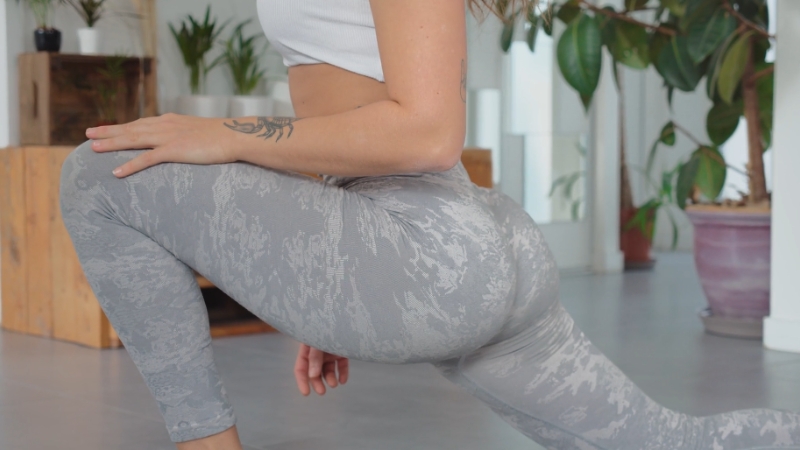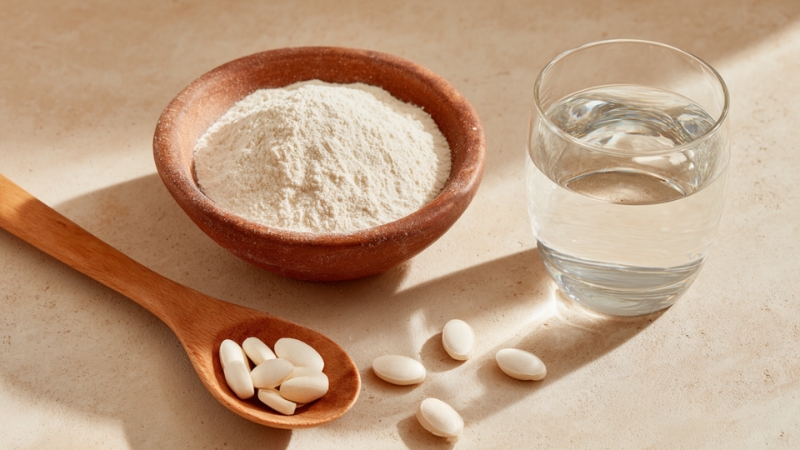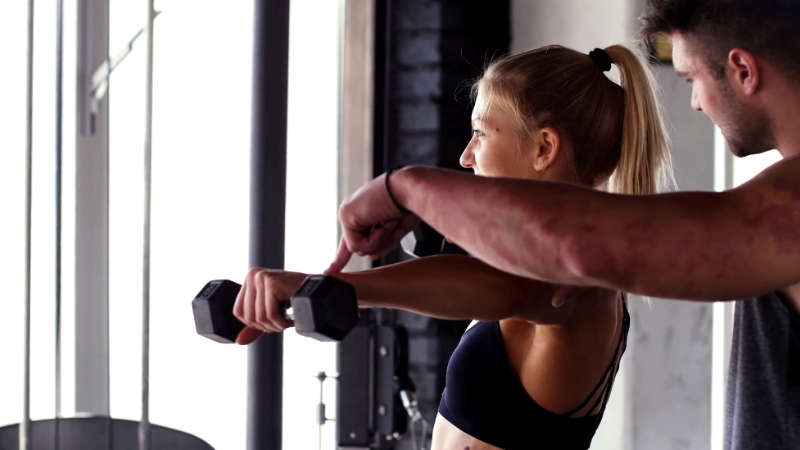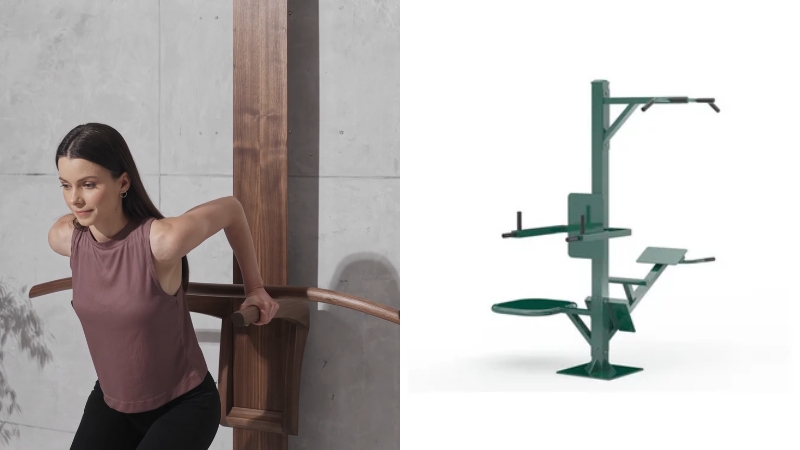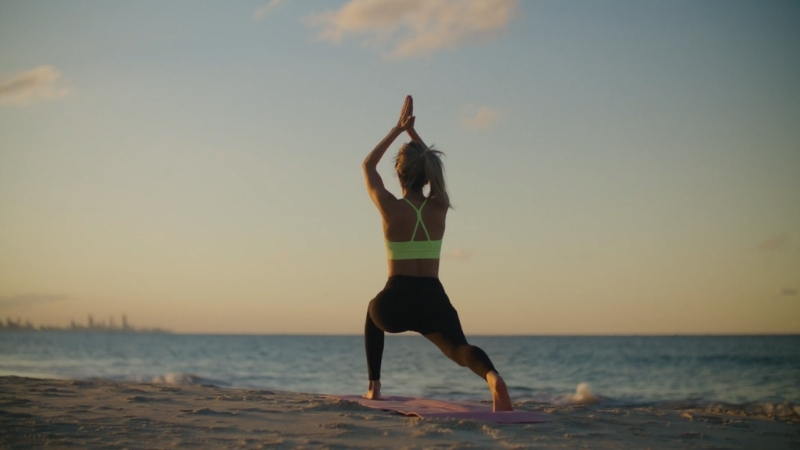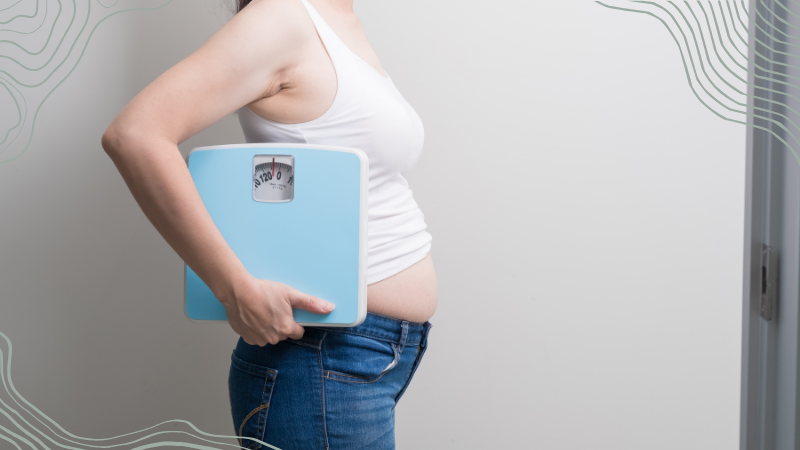
Share Post:
Let’s face it: working out when you’re bloated is no picnic. You feel sluggish, your body feels heavier, and the last thing you want to do is squeeze into workout clothes and move.
But here’s the thing, gentle movement can be a game-changer, both for your body and your mood.
So, how do you work out when you’re feeling less than your best?
Let me share what I’ve learned about staying active on tough days. It’s all about listening to your body, choosing the right kind of movement, and being kind to yourself.
Why You Should Move, Even When Bloated
When you’re bloated, it’s tempting to park yourself on the couch and binge your favorite show.
Sometimes, that’s what you need. But other times, a little movement can actually help ease the discomfort.
Gentle workouts can:
- Improve circulation, which may reduce bloating.
- Stimulate digestion to get things moving (you know what I mean).
- Boost your mood, even when your body feels off.
Choose the Right Type of Exercise
Not all workouts are created equal when you’re bloated. High-intensity workouts can sometimes make things worse, leaving you feeling more uncomfortable. Instead, opt for activities that are easier on your body and mind.
1. Yoga for Gentle Stretching
Yoga is an absolute lifesaver for days when my stomach feels like a balloon.
Poses that focus on twisting and stretching the abdominal area can help ease gas and discomfort.
Some go-to poses:
- Cat-Cow Stretch: Gently massages your belly and spine.
- Seated Forward Fold: Helps compress your abdomen.
- Twists: Seated or lying down, twists feel amazing for digestion.
2. Walking
A simple walk can work wonders. It’s low-impact, gets your blood flowing, and doesn’t require any special gear.
Plus, walking outdoors can give you a mental boost. Even 15–20 minutes around your neighborhood might make a difference.
3. Low-Intensity Cardio
If you’re in the mood for something slightly more active, low-intensity options like cycling or swimming can feel good. Keep it slow and steady, no need to push yourself.
How to Make Working Out More Comfortable
Getting started can feel like the hardest part. There are some practical tips that can make it easier to get moving.
- Dress for Comfort: Tight clothes and bloating don’t mix. Go for loose, stretchy fabrics that don’t pinch or squeeze. High-waisted leggings can be great, but only if they’re not too restrictive.
- Hydrate, Hydrate, Hydrate: It’s cliché, but staying hydrated really does help. Sip water before and after your workout to support your digestion. Avoid fizzy drinks, they might make bloating worse.
- Start Slow and Listen to Your Body: Your energy might be lower than usual, and that’s okay. Start small and see how you feel. Some days, a five-minute stretch session is all you need. On other days, you might find yourself feeling good enough to keep going.
- Focus on Your Breath: Deep, intentional breathing can help relax your body and support digestion. Try inhaling deeply through your nose, holding for a few seconds, and exhaling slowly. It’s a simple trick, but it works wonders during yoga or stretching.
What to Avoid
Sometimes, knowing what not to do is just as important as knowing what to do. Here’s what I steer clear of when I’m feeling bloated:
- High-Intensity Workouts: Jumping, sprinting, or anything that jostles your stomach can make you feel worse.
- Core-Heavy Exercises: Crunches and planks might seem like a good idea, but they can put too much pressure on your already sensitive midsection.
- Long Workouts: Keep it short and sweet. You’re not trying to break records here—just moving enough to feel better.
When to Skip Exercise Altogether
Some days, working out just isn’t the right call and that’s okay. If your bloating is accompanied by pain, nausea, or dizziness, it’s best to rest and let your body recover. Sometimes a hot water bottle and a good book are all you need.
- Self-Care Beyond Exercise:Bloating isn’t just a physical discomfort, it can mess with your mood, too. On days when you’re feeling off, give yourself permission to slow down and focus on self-care.
- Eat Mindfully: Stick to light, easily digestible foods like soups, smoothies, or steamed veggies. Avoid anything overly salty or sugary, which can make bloating worse. If you’re looking for convenient and balanced nutrition options, meal replacement shakes available in New Zealand can be a great addition to your mindful eating. These meal replacement shakes nz are formulated to provide essential nutrients without overloading your digestive system, helping to manage bloating while ensuring you stay nourished.
- Take a Warm Shower or Bath: Warm water is incredibly soothing, both for your muscles and your mind. Bonus points if you add Epsom salts, they’re great for reducing inflammation.
- Practice Gratitude: Okay, I know this might sound cheesy, but hear me out. Taking a moment to appreciate your body (yes, bloated belly and all) can shift your mindset. Instead of focusing on discomfort, try to remind yourself that your body is doing its best.
A Sample Routine for Bloated Days
If you’re looking for a little structure, here’s a simple workout routine you can try:
- Start with Breathing (2–3 minutes): Deep belly breaths to relax your body.
- Gentle Yoga Flow (10 minutes): Incorporate Cat-Cow, seated twists, and child’s pose.
- Go for a Walk (15–20 minutes): Keep a steady, comfortable pace.
- End with Stretching (5 minutes): Focus on areas that feel tight, like your back and hips.
My Final Thoughts
Working out when you’re bloated isn’t about hitting the gym hard or crushing a HIIT session. It’s about tuning into what your body needs and choosing a movement that feels supportive.
Some days, that might mean yoga and a walk. On other days, it might mean curling up with a heating pad and skipping the workout altogether.
The most important thing is to be kind to yourself. Bloated or not, your body deserves compassion and a little gentle movement can go a long way.
Related Posts:
- Feeling Bloated at the Gym? Here’s Why It Happens…
- 10 Best Ways to Soothe Tired Legs After a Tough Workout
- Starting MMA as a Woman - What to Expect in Your…
- What Fit People Eat on the Go? Quick and Healthy…
- Posing Tips and Techniques - 10 Tips for Female Bodybuilders
- Gym Etiquette Guide - Graceful Tips for Staying…



